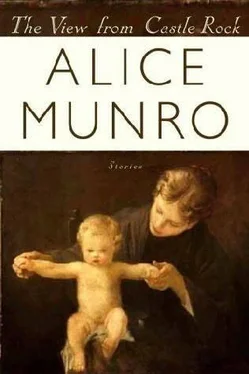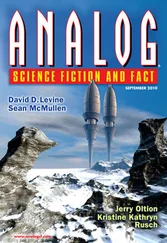He strives, he falls. Darkness again.
Meanwhile the roof of the manse is leaking, the walls are damp, the chimney smokes, his wife and his children and he himself are often sick with fevers. They have septic throats and rheumatic aches. Some of his children die. The very first baby is born with what sounds to me like spina bifida and she dies soon after birth. His wife is distraught, and though he does his best to comfort her he feels bound also to reprimand her for complaining against God’s Will. He has to reproach himself later for lifting up the coffin lid to get one last glimpse of the face of his own favorite, a little boy of three. How wicked of him, how weak, to love this sinful scrap of flesh and to question in any way his Lord’s wisdom in taking him. There must be further wrestlings, self-castigation, and bouts of prayer. Wrestlings not only with his dullness of spirit but with a majority of his fellow ministers, for he becomes deeply interested in a treatise called The Marrow of Modern Divinity. He is accused of being a marrow-man, in danger of going over to antinomianism. Antinomianism proceeds logically from the doctrine of predestination and asks a simple, direct question-why, if you are from the beginning one of the elect, should you not be able to get away with anything you like?
But wait. Wait. As to being one of the elect, who can ever be so sure?
And the problem for Boston must surely not be about getting away with anything, but about the compulsion, the honorable compulsion, to follow where certain lines of reasoning lead.
Just in time, however, he falls back from error. He retreats. He is safe.
His wife, in the midst of births and deaths and care of the remaining children and troubles with the roof and the continual cold rain, is overcome by some nervous disorder. She is unable to get out of her bed. Her faith is strong, but vitiated, as he says, on one essential point. He does not say what this point is. He prays with her. How he manages in the house we do not know. His wife, once the beautiful Catherine Brown, seems to stay in bed for years, except for the one touching respite when all the family is laid low by some passing infection. Then she rises from her bed and cares for them, tirelessly and tenderly, with the strength and optimism she showed in her youth, when Boston first fell in love with her. Everyone recovers, and when next heard from she is back in bed. She is well on in years but still alive when the minister himself is dying, and we can hope that she will get up then and go to live in a dry house with some agreeable relations in a civilized town. Keeping her faith but holding it at arm’s length, perhaps, to enjoy a bit of secular happiness.
Her husband preaches from his chamber window when he is too feeble and close to death to get to the church and up into the pulpit. He exhorts bravely and fervently as ever and crowds gather to hear him, though it is raining, as usual.
The bleakest, the most desperate life, from any outside point of view. Only from the inside of the faith is it possible to get any idea of the prize as well as the struggle, the addictive pursuit of pure righteousness, the intoxication of a flash of God’s favor.
So it seems strange to me that Thomas Boston should have been the minister whom Will O’Phaup listened to every Sunday during his young manhood, probably the minister who married him to Bessie Scott. My ancestor, a near pagan, a merry man, a brandy drinker, one upon whom wagers are set, a man who believes in the fairies, is bound to have listened to, and believed in, the strictures and hard hopes of this punishing Calvinist faith. And in fact when Will was pursued on All Hallows’ Eve did he not call for protection on the same God whom Boston called upon when he begged to have the weight-of indifference, doubt, sorrow-lifted off his soul? The past is full of contradictions and complications, perhaps equal to those of the present, though we do not usually think so.
How could these people fail to take their religion seriously, with its threat of Hell inescapable, with Satan so cunning and relentless in his torments, and Heaven’s population so sparse? And they did, they took it seriously. They were called up for their sins to sit on the cutty stool and bear their shame-usually for some sexual matter, solemnly referred to as Fornication-in front of the congregation. James Hogg was summoned there at least twice, charged with paternity by local girls. One case he admitted readily and in the other he would only say that it was possible. (Eighty miles or so to the west, in Mauchline in Ayrshire, Robert Burns, eleven years older than Hogg, suffered precisely the same public humiliation.) The Elders went from house to house to see that no cooking was in progress on a Sunday and at times their harsh hands were employed in severely squeezing the breasts of any woman suspected of having borne an illegitimate child, so that a drop of milk might betray her. But the very fact that such vigilance was thought necessary shows how these believers were waylaid by Nature in their lives, as people always are. An Elder in Burns’s church records “Only 26 Fornicators since the last sacrament,” as if this figure is indeed a step in the right direction.
And they were waylaid also in the very practice of the faith, even by the industry of their own minds, by the arguments and interpretations that were bound to arise.
This might have had something to do with their being the best-educated peasantry in Europe. John Knox had wanted them educated so that they could read the Bible. And they read it, with piety but also with hunger, to discover God’s order, the architecture of His mind. They found a lot to puzzle about. Other ministers of Boston’s time complain of how disputatious their parishioners are, even the women. (Boston does not mention that, being too busy blaming himself.) They do not quietly accept the hours-long sermons but grab hold of them as intellectual fodder, judging as if they were involved in lifelong and deadly serious debates. They are forever worrying at points of doctrine and passages of scripture that they would be better off leaving alone, say their ministers. Better to rely on those trained to deal with such things. But they will not do so, and the fact is that the trained ministers as well are sometimes driven to conclusions that other ministers must condemn. The result being that the Church is riven by divisions, the men of God are frequently at one another’s throats, as Boston’s own troubles have shown. And it may have been the stain of being a marrow-man, of following his own unavoidable thought, that kept him so long in remote Ettrick, never up to his death being “translated” (as the word was then) to a moderately comfortable place.
James Hogg and James Laidlaw
He was always a singular and highly amusing character who cherished every antiquated and exploded idea in science, religion, and politics… Nothing excited his indignation more than the theory of the earth wheeling round on its axis, and journeying around the sun…
… for a number of years bygone he talked and read about America till he grew perfectly unhappy, and at last when approaching his sixtieth year actually set out to seek a temporary home and a grave in the new world.
James Hogg, writing about his cousin James Laidlaw.
Hogg poor man has spent most of his life in conning lies…
James Laidlaw, writing about his cousin James Hogg,
poet and novelist of early-nineteenth-century Scotland.
He was a gey [very] sensible man, for a’ the nonsense he wrat…
Tibbie Shiel, innkeeper, also buried in Ettrick Kirkyard,
speaking about James Hogg.
James Hogg and James Laidlaw were first cousins. Both men were born and raised in the Ettrick Valley, a place which had not much use for their sort-that is, for the sort of men who do not take easily to anonymity and quiet lives.
Читать дальше












